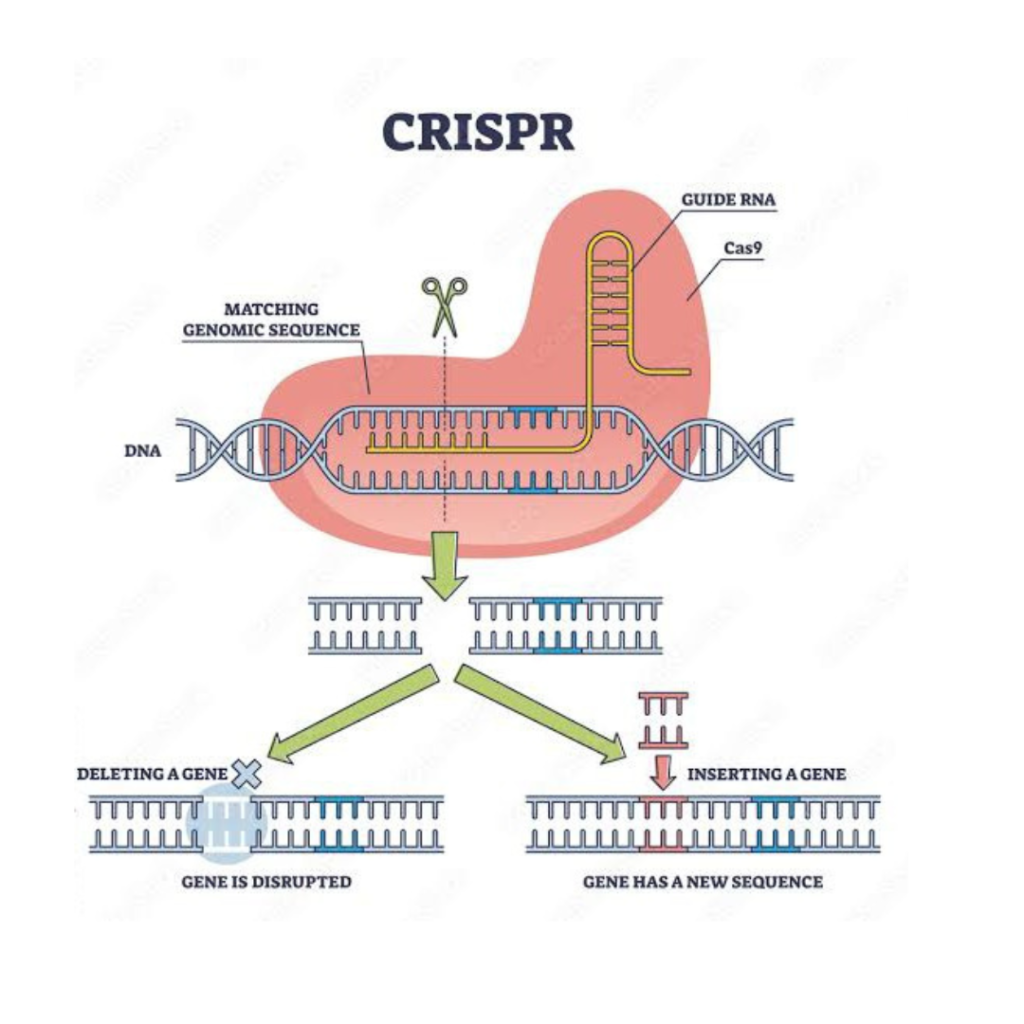During our lifetime, we think about the food we eat, we watch videos to get information, consultant dieticians – why? We all are looking for a healthy life and engage in activities that help us lead a healthy life. So, what is the role of nutritionist in our healthy life?
Introduction
Starting a journey, as a nutritionist can bring about satisfaction. With society placing emphasis on health and understanding the significance of nutrition for overall wellness there is a growing need for proficient nutrition experts. So what does it involve to enter the field of nutrition. How can you carve out your own unique place in this ever evolving industry? This article will explore aspects of a career in nutrition such as requirements, career prospects and options, for specializing.
Role of a nutrionist
- A nutritionist is someone, in the healthcare field who focuses on studying nutrition and how it impacts health. Their role involves evaluating, creating and executing diet plans, for individuals or groups to enhance well-being.
- Nutritionists are essential, in encouraging eating habits and preventing diseases like obesity, diabetes and heart issues. They guide individuals, on the benefits of food empowering them to make choices for their health. By offering advice and support nutritionists tackle health issues. They offer guidance to individuals who want to reach their healthy lifestyle goals.
- Nutrition professionals can be found in settings such, as hospitals, clinics and healthcare facilities. They partner with teams to offer assistance to patients dealing with specific health conditions. Furthermore, they are involved in public health organizations and community groups creating and executing nutrition education initiatives to enhance the well-being of the population. Additionally, they may be seen in schools where they develop meal programs and educate students on the importance of eating habits. Some nutrition experts opt for a career, in research delving into studies to expand our knowledge of nutrition’s role in influencing health outcomes.
- Dietitians have an impact, on managing and preventing illnesses by creating customized meal plans that target risk factors and support good health. They collaborate closely with individuals dealing with issues, like weight problems, high blood pressure and digestive disorders offering advice to enhance their well-being and quality of life.
- Nutrition experts may also participate in advocating for public health campaigns and shaping policies to advance initiatives concerning nutrition. Their goal is to impact regulations and guidelines concerning food labelling the availability of food and nutrition education, in order to establish settings that encourage practices.
For those contemplating a profession in the area of Nutrition, it is important to understand the responsibilities and role. Nutritionists play a role in enhancing the health and quality of life of people and communities engaging in work, outreach programs and research where their knowledge, in nutrition science and dietary planning shines through.
Education requirements
| Educational Component | Description |
|---|---|
| Bachelor’s Degree | – Start with earning a bachelor’s degree in nutrition, dietetics, food science, or a related field. |
| Accreditation | – When choosing program abroad, choose ACEND (Accreditation Council for Education in Nutrition and Dietetics) and in India, choose IDA (Indian Dietetic Association) |
| Supervised Practice | – Gain hands-on experience is a must and will help in understanding the challenges and ways of working. |
| Clinical Experience | – Gain practical skills in assessing clients’ nutritional needs, developing meal plans, and monitoring progress through clinical rotations. |
| Licensure or Certification | – Obtain licensure or certification as required by the jurisdiction, such as becoming a Registered Dietitian Nutritionist (RDN). |
| Continuing Education | – Commit to lifelong learning through continuing education programs, workshops, and seminars to stay updated on advancements in the field. |
| Specialized Training | – Pursue specialized training or advanced degrees in areas like sports nutrition, pediatric nutrition, or public health nutrition. |
| Professional Development | – Engage in activities such as volunteering, research projects, and leadership roles to enhance skills and expand career opportunities. |
| Entrance Exams | Application Deadlines | Exam Dates | Result Declaration |
|---|---|---|---|
| NPAT | May 20, 2024 | January 1, 2024 – May 25, 2024 | June 2024 |
| CUET | March, 2023 | May 15 – May 31, 2024 | To be notified |
| MHT CET | March 1, 204 | PCB- April 16 – April 23, 2024 | May 2024 |
| BITSAT | April 11, 2024 (Session I) June 10, 2024 (Session II) | May 21 – 26, 2024 (Session I) June 22 – 26, 2024 (Session II) | To be notified |
Licenses and certifications
| Region | Licensure Requirements | Certification Options |
|---|---|---|
| India | – Obtain a bachelor’s or master’s degree in nutrition or dietetics. | – Registered Dietitian Nutritionist (RDN) |
| – Fulfill any additional requirements mandated by state or local authorities. | – Certified Nutrition Support Clinician (CNSC) | |
| – Pass any licensing examinations specified by regulatory bodies. | – Certified Diabetes Educator (CDE) | |
| – Complete supervised practice hours, if required. | – Certified Specialist in Sports Dietetics (CSSD) | |
| – Stay updated on continuing education requirements. | – Certified Clinical Nutritionist (CCN) | |
| Abroad | – Varies significantly by country and jurisdiction. | – Accredited Practising Dietitian (APD) (Australia) |
| – May include completion of accredited educational programs. | – Registered Nutritionist (RNutr) (United Kingdom) | |
| – Passing licensing examinations administered by regulatory authorities. | – Certified Nutrition Professional (CNP) (Canada) | |
| – Fulfillment of supervised practice or internship requirements. | – Board Certified Specialist in Renal Nutrition (CSR) (United States) | |
| – Compliance with continuing education standards for license renewal. | – Certified Nutrition Specialist (CNS) | |
| – Research reciprocity agreements for international recognition. | – Certified Diabetes Care and Education Specialist (CDCES) |
Please note that the requirements listed above are for illustrative purposes and may vary based on specific regulations and updates in respective regions. Prospective nutritionists are advised to consult official sources and regulatory bodies for the most accurate and up-to-date information.
Career path and specialization to becoming a nutrionist
The nutrition field provides a range of career opportunities and specialized areas to explore catering to interests, skills and professional goals. Lets delve into the career paths and specializations that nutritionists can pursue;
- Clinical Nutrition: Clinical nutritionists work in healthcare settings, like hospitals, clinics and private practices. They offer nutrition therapy and advice to individuals with conditions or specific dietary requirements. Collaborating with healthcare teams they create personalized nutrition plans monitor patients nutritional health and educate them on how to improve their well being through nutrition.
- Sports Nutrition: Sports nutritionists focus on enhancing performance and meeting the needs of athletes and active individuals. They assess athlete’s nutritional needs, design customized meal plans. Provide guidance on hydration nutrient timing and supplement usage to boost endurance, strength and recovery. Sports nutritionists can be found working with sports teams, college programs, fitness canters or guiding athletes.
- Paediatric Nutrition: Paediatric nutritionists specialize in addressing the requirements of babies, children and teenagers. They play roles in supporting growth and development by managing childhood obesity issues as well as addressing concerns such, as food allergies, feeding challenges and developmental setbacks.
Nutrition experts specializing in childrens health can be found working in hospitals, paediatric clinics, schools or public health programs that focus on child nutrition. - For adult’s geriatric nutritionists cater to their dietary needs and nutritional obstacles. They specifically address the challenges faced by seniors, in long term care facilities, assisted living communities or those receiving home healthcare services. These professionals create nutrition plans to tackle issues like malnutrition, sarcopenia and dysphagia that are common among the elderly. They also collaborate with teams to enhance the nutritional well-being and quality of life for seniors.
- Community nutrition practitioners operate within public health organizations, government agencies, non-profits and community health centres. Their primary goal is to implement education programs and policy initiatives that promote population health outcomes. This involves conducting assessments of community needs developing resources on nutrition topics and advocating for policies that ensure access to foods and equitable nutritional opportunities within communities.
Nutrition experts in food service management play a role in overseeing the planning and delivery of meals across various settings such as hospitals, schools, corporate cafeterias and food establishments. Their responsibilities include ensuring compliance with guidelines and safety regulations while upholding standards. Moreover, they manage aspects, like budgeting staffing needs. Creating menus to provide meal options. Nutrition experts working in food service settings may also educate staff on nutrition and collaborate, with chefs to develop menu choices.
For those advancing in the field through research and academia nutritionists pursue careers in institutions, research organizations or industry research settings. They conduct studies on nutrition topics publish articles and contribute to scientific progress in areas such as metabolism, chronic disease prevention and nutritional epidemiology. These researchers may also teach courses, mentor students and share evidence-based nutrition information with healthcare professionals and the public.
Nutritionists also have the option to start their private practices consulting businesses or wellness ventures that offer personalized nutrition coaching, meal planning services, cooking classes or specialized nutrition programs. By utilizing their expertise and creativity while applying business skills effectively they establish ventures that cater to the needs of clients seeking nutritional guidance and support.
Irrespective of their chosen career path or specialization within the field of nutrition these professionals play roles in promoting health preventing disease and empowering individuals to make decisions, about their diet and lifestyle.
Professionals can establish careers in the evolving field of nutrition by focusing on their interests and specialized knowledge. This allows them to follow their passions while making contributions, to the health and wellness of people and communities.
Please visit our website for more information on other careers.

Job outlook for a nutrionist
When considering a career, as a nutritionist it’s crucial to look into the job opportunities and potential salaries. Here’s a detailed overview of what to expect in terms of job prospects and earnings in the field of nutrition;
Job Outlook: Nutritionists have promising job prospects due to the growing recognition of the role nutrition plays in maintaining health and preventing diseases. As more people focus on eating and well-being there is an increasing demand for nutrition experts across sectors like healthcare, education, food industry and public health. Factors like aging populations, rising obesity rates and the importance placed on healthcare all contribute to the need for nutritionists.
Industry Demand: Nutritionists can find employment in settings such as hospitals, clinics, schools, government agencies, nonprofit organizations, corporate wellness programs, fitness centres and private practice. The versatility of the field allows nutritionists to explore career paths based on their interests and expertise.
Specialization Impact: Choosing to specialize in areas, like nutrition, sports nutrition, paediatric nutrition or public health can influence both job opportunities and potential earnings. Specialized nutritionists have the potential, for career advancement increased pay and leadership positions in their fields. Emerging areas like nutrigenomics, nutrition and integrative nutrition present avenues for growth and specialization.
Salary Range: The pay scale for nutritionists can vary based on factors such as education, experience, location, industry sector and area of expertise. Entry level roles may offer salaries while senior positions or roles in high demand specialties may come with compensation packages.
Geographic Differences: Nutritionist salaries can differ significantly depending on factors, cost of living and supply demand dynamics. Urban areas or regions with healthcare facilities and affluent populations often provide pay to nutrition professionals compared to rural or underserved areas. Prospective nutritionists should research salary trends in their preferred locations. Take into account factors, like job availability, competition levels and lifestyle preferences when assessing career prospects.
When discussing negotiations and benefits, in the field of nutrition it’s not about the base salary. Nutritionists might also enjoy perks like health insurance, retirement packages, paid time off allowances for development and bonuses based on performance. It’s crucial to negotiate both salary and benefits when landing a job as it can greatly influence your compensation and job satisfaction. Being aware of industry norms market conditions and recognizing your value can empower nutritionists to negotiate and secure favourable terms of employment.
While salary plays a role in career decisions aspiring nutritionists should also focus on aspects like job satisfaction opportunities for growth maintaining work life balance and how well the job aligns with values and career objectives. By keeping up to date with industry developments networking with peers and continuously improving skills and qualifications nutritionists can establish fulfilling careers that provide stability while making contributions, to individual and community well-being.
Skills and qualities for success
To excel as a nutritionist, one needs a mix of know how people skills and personal attributes that help professionals assess, educate and empower individuals to make choices. Let’s dive deeper into the skills and qualities, for success in the field of nutrition.
Nutritional Expertise: Having an understanding of nutrition science is crucial for nutritionists to grasp the processes involved in digestion, metabolism and nutrient absorption. It’s also important to recognize how macro and micronutrients play a role in promoting health and preventing diseases. Staying informed about the research, dietary guidelines and nutritional trends allows nutritionists to offer evidence-based advice to their clients.
Assessment and Analysis: Nutritionists should be able to conduct evaluations of their clients’ eating habits, nutritional status, health objectives and lifestyle choices. This includes gathering data through interviews, dietary assessments, food logs and lab tests to pinpoint any deficiencies or imbalances that need attention. By honing their assessment skills nutritionists can create customized diet plans that cater to each client’s requirements.
Communication: Clear communication is key for nutritionists when explaining nutritional concepts in a simple manner that clients, from various backgrounds can understand easily. Strong communication skills help build rapport with clients while ensuring they comprehend the information provided. Nutrition professionals need to excel in listening, empathy and building rapport to establish trust and encourage communication, with their clients. Clear and compassionate communication helps teamwork empowers clients to take charge of their well-being and boosts adherence to advice.
Cultural Awareness: Having competence is vital for nutritionists to acknowledge and honour beliefs eating habits and food preferences that impact individuals’ food decisions and eating habits. Nutrition professionals should be mindful of traditions, norms and dietary restrictions when creating nutrition plans that align with the backgrounds and values of their clients. Providing sensitive care promotes inclusivity builds trust and improves the efficacy of nutrition interventions across populations.
Critical Thinking and Creative Problem Solving: Nutritionists must possess thinking abilities to analyse complex nutritional issues evaluate scientific data and make well informed decisions in clinical settings. They should be able to identify obstacles to eating habits assess risk factors for diet related illnesses and devise solutions to overcome challenges in implementing dietary changes. Effective problem-solving skills enable nutritionists to adjust interventions based on clients changing needs while addressing hurdles.
Empathy and Understanding: Empathy and compassion are qualities that allow nutritionists to forge connections, with clients by comprehending their challenges without judgment. Empathetic listening plays a role, in building therapeutic relationships encouraging clients to openly express their concerns and aspirations and boosting their motivation to make positive changes. Providing care shows care for clients well being and helps create a supportive environment that promotes healing and personal growth.
Managing time effectively is crucial for nutritionists who handle tasks like client meetings, meal planning, documentation and administrative duties. Having skills allows them to prioritize tasks efficiently handle workload effectively and meet deadlines. Nutritionists should strike a balance between their responsibilities, professional development efforts, self care routines and maintaining a healthy work life equilibrium to prevent burnout and sustain job satisfaction in the long run.
In the changing landscape of nutrition science and healthcare practices nutritionists need to embrace learning and adaptability as core principles. Being proactive in seeking out opportunities for education staying informed about research findings and acquiring relevant certifications are essential for professional growth. Continuous learning enhances their expertise equips them to adapt to shifts, in guidelines or healthcare policies effectively. By honing these abilities and attributes nutrition professionals can thrive in their positions impact the health and wellness of people and communities and succeed in a fulfilling career focused on advocating for nutrition and healthy living practices.
FAQs
1. What’s the difference between a nutritionist and a dietitian?
While both work in food and health, dietitians have a stricter qualification path requiring a bachelor’s degree, supervised practice, and a license. Nutritionists can have varying qualifications, with some requiring a degree and others offering certifications.
2. Do I need a degree to become a nutritionist?
Some roles require a bachelor’s degree in nutrition or a related field like food science. However, some certifications can qualify you for specific areas like wellness coaching.
3. What are the different areas of specialization for nutritionists?
There are many! Some popular areas include sports nutrition, pediatric nutrition, geriatric nutrition, and public health nutrition.
4. How long does it take to become a nutritionist?
Earning a bachelor’s degree typically takes 4 years. Certifications can take less time, but the specific timeframe depends on the program.
5. Is there a high demand for nutritionists?
Yes! The demand for qualified nutritionists is expected to grow in the coming years, fueled by an increased focus on preventive healthcare and chronic disease management.
6. What skills do I need to be a successful nutritionist?
Strong communication, interpersonal skills, and the ability to translate complex science into clear, actionable advice are all crucial. Business acumen can also be helpful.
7. Where can I work as a nutritionist?
The options are diverse! Hospitals, clinics, private practice, sports facilities, schools, and even food companies all employ nutritionists.
8. How much do nutritionists earn?
Salaries vary based on experience, location, and specialization. You can find salary information through resources like the Academy of Nutrition and Dietetics.
9. Is it a good career for someone who loves food?
Absolutely! You’ll be using your passion for food to help people develop healthy relationships with it.
10. What are the first steps to becoming a nutritionist?
Research the different career paths and required qualifications. Look into accredited nutrition programs and consider your area of specialization.





